
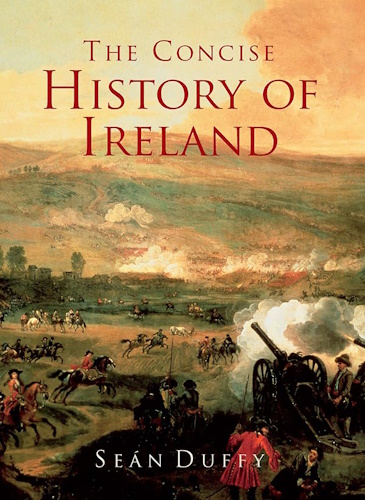
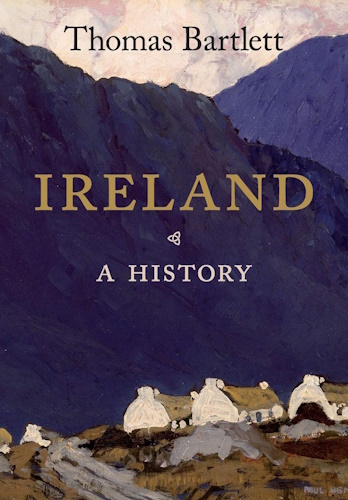
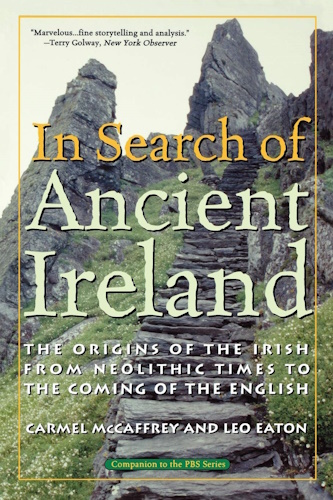


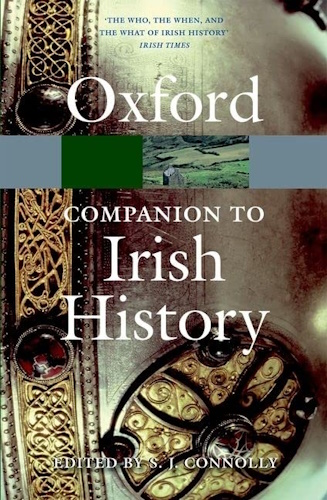
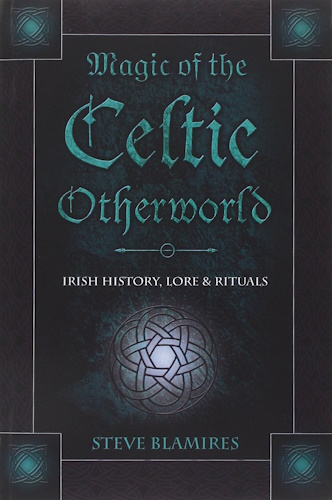
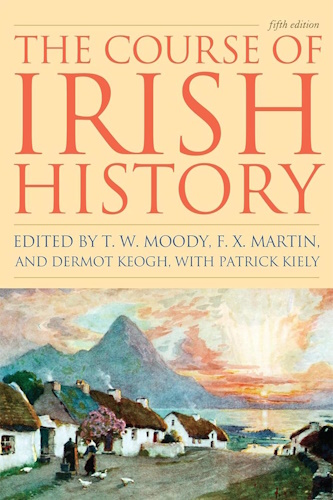
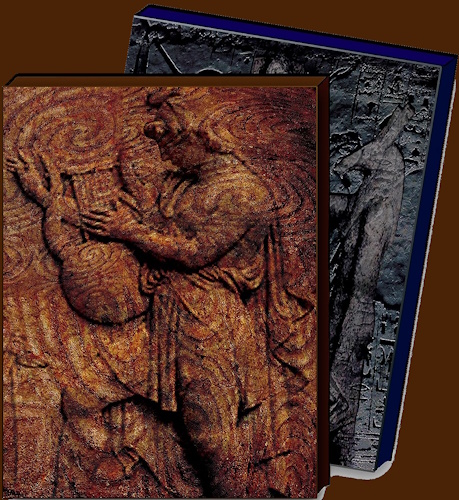
Conor MacDari
Appendix IV to Volume I
of
The Irish Origins of Civilization
by
Michael Tsarion
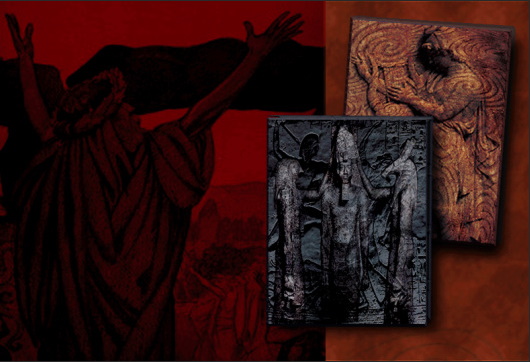
![]()
![]()

Introduction
Britain was, indeed, the insula sacra of the West, an island veiled and esoteric, the Egypt of the Occident - Lewis Spence (The Mysteries of Britain, 1905).
The remains of the great Chaldean nation, can be particularly distinguished in Great Britain and Ireland, and these remains have special reference to the religion of the Chaldean and the Hebrew - Anna Wilkes.
The great researcher of the occult history of ancient Ireland, Mr. Conor MacDari, wrote two books which have long been suppressed. These book are entitled: Irish Wisdom Preserved in Bible and Pyramids and The Bible: An Irish Book [I find Mr. Tsarion fudged the title (for effect I assume) which is actually How The Bible Is An Irish Book Altered And Adapted By British-Roman Transcribers. I think it important that we are always honest when citing another.]: On this page we provide some excerpts from the latter tome:
The Druid or Aryan Priesthood
The Brehon (Judges) laws of Eire were, without a doubt, the most ancient code of laws on earth. It was under the guidance and instruction of those first great teachers that there developed in the Island of Eire that cult of wise men who are know[n] to us by tradition, and in cryptic lore, as the Ancient Magi or Magician of Eire. This was the great Adept order of priesthood whose history has been suppressed like that of the island itself, but the memory of which is secretly preserved in mythic form in secular or profane history, and in our Irish sacred book, the Bible – Conor MacDari.
The Destruction of the Irish (Aryan) World Church
Rome waged war against the Irish Church colony at Carthage, in North Africa, Spain, Gaul, Britain, Eire and Germany. She seemed to have grasped the idea early that her successful progress to power could be only through the conquest and acquisition of the Irish Church...This warlike spirit, aroused by Rome in the eleventh century, was not allowed to subside in the twelfth and was directed against Eire. As England was Roman Church territory, in due time the crusading spirit of conquest in the interest of the church was directed to that country. The Pope of that day, Adrian IV, an Englishman, who had been chosen pope on the strength of the probability of his being able to induce the English to attack Eire and bring the Irish Church under the sway of the Roman Pontiff, succeeded in enlisting King Henry II of England to undertake the conquest of Eire in the interest of the Roman Church. For this purpose the Pope issued a Bull authorizing Henry to take possession of the country.
The story of the Roman Church is quite different and not a pleasant one to dwell upon. She made her advance through the medium of intrigue, war, fire and sword, persecution, torture, confiscations, and death, the exemplification of force and intolerance. By such means she gained control and increase in power and the Irish Church missionaries were gradually forced to withdraw from the continent. It was only by such forcible means that she could make gains against the Irish Church whose representatives surpassed hers in every field of peaceful endeavor...in learning, the sciences, philosophy and spiritual culture.
No doubt the clerical scribes who translated and revised the ancient Irish text felt satisfied that, with the Irish language and culture suppressed and destroyed, no one in a future age would be able to discover the deception which was perpetrated in telling the Christian world that the Scriptures were obtained from a tribe of so-called Hebrew people who lived in a desert and mountainous country in Asia, now called Syria. But, as fate would have it, the deception was not destined to go undiscovered.
Destruction of Ancient Irish Culture
The efforts, then, appear ridiculous of obscurantists who, by the destruction of literary works, interpolations and forgeries, have endeavored to make it appear that Irish culture and learning did not antedate the sixth century AD. This was done for the pirposse of making it appear that the beginnings of Irish culture and learning took place some time after the fictitious date which had been set as the advent into Ireland of the spurious Roman St. Patrick.
This claim is too absurd today, as we know that up to the date assigned to "Patrick" Rome had been engaged in a crusade of destruction against all learning, books, literature, libraries and culture for a period of at least one hundred years. The libraries of Alexandria had been destroyed about the year 395 or 400 AD. It is certain that whatever literature or learning there was in Greece or in Italy or the adjoining provinces at the time were destroyed.
The Roman Church, in her endeavor to blot out the history of the past ages in order to conceal a great deception, destroyed whatever she may have had of literature, and, since her acquisition of the Irish Church and institutions, she has appropriated the names and works of Irish authors to enrich her reputation for learning and culture and to build up a fictitious galaxy of distinguished sons to ornament her escutcheon. In short, the history of Rome is largely fiction.
Murderous Allies
The success of the invading force in Eire was aided greatly by the Norman French colony under the leadership of Richard de Clair (Strongbow), which had been planned in Ireland about one hundred years previously, instituting what is known in our day as the "policy of peaceful penetration." As the barbarous Norse and Danes centuries before had been instigated by Rome to war on territory occupied by the Irish Church, it was natural that Duke William of Normandy, of that same racial stock, would be an ally of Rome. He was urged by the pope of his day to attack England in the interest of his church, the secret reason being that the Roman Church could not compete with the Irish Church in England as the Irish were the master scholars of Europe and their spiritual culture, instruction and learning were once more becoming dominant in England, and something had to be done to keep that country under the power of Rome...Duke William invaded England in 1066 AD, and four years later, in the year 1070, a body of seventy knights, adventurers, went to Eire, took part in a quarrel between a provincial king and prince and settled there. They formed marriage alliances with many of the leading families and were the first units sent into the country to prepare the way for the successful invasion of the Island a century later under Henry II of England.
The Irish Pope
This conquest and absorption of the Irish Church was...the most important and momentous event in the whole history of the Roman Church, an event which has changed and affected the entire course of subsequent history even to this day. The conquest enabled the Roman Pontiff to plume himself as the Supreme Pontiff, which distinction was formerly held by the Irish Pope-Kings whose Seat was Tara.
- The Roman Pope is referred to as the Vicar of Christ. The word vicar implies a mediator. In other words, through the "Vicar" one has a vicarious relationship with Christ. The word vicar is correctly rendered Vice Ari. The syllable vice means "in place of." Ari means "Druid." The pope is the stand in or replacement for the Druid Priest. The syllable vi means "white" while ari means "noble" or "wise elder." It is similar in meaning to viceroy - Mtsar.
Crimes Against Words and Letters
One of the easiest and most effective ways to promote a deception is by the misspelling of words...In the translation from the original Irish scriptures, the Irish names were changed by the practice of the most astute cunning in order to conceal the source from which they were obtained. In many instances these names have been distorted and misspelled to such an extent that it has required long sustained and patient effort to trace them to their true and proper form.
This peculiar liability of men to be deceived by words and names when they are presented in disguised and abbreviated, or unfamiliar, forms of spelling has been taken full advantage of by the obscurantists, who have in some ways secreted and in other ways suppressed the history of the past ages.
Reign of Charlemagne
The state of learning on the continent of Europe at that time, wherever the influence of the Roman Church was dominant, was at a very low state or non-existent. It was only in the monastic establishments maintained at different points on the continent by the monks of the Irish Church that learned men were to be found. There were practically no learned men in the Roman Church at that time. Even a century later when the Emperor Charlemagne espoused the cause of the Roman Church, he had to get Irish schoolmen for instructors to teach in the palace school which he established.
Ireland and Germany
While it is acknowledged that the renaissance of learning on the continent of Europe in the early medieval period was due to Irish instruction and culture, this acknowledgement comes only in outspoken candor from German rather than from British or Roman sources. These latter have endeavored to minimize the work of the Irish philosophers, schoolmen, and monks and their learning and culture.
No Part of the Crusades
It will be noted that Eire (Ireland) took no part in the wars of the Crusades, a strange thing if she belonged to the Roman Church...The very absence of the Irish from the crusading forces tells the story in itself and is significant evidence that they did not belong to and were not affiliated in any way with the Roman Church at that time, 1096-1099 AD...The fact is, of course, that the Roman Church was an enemy and was at war against the Irish Church and nation.
Bible Off Limits
Even in England, until a late date, comparatively speaking, the Bible was kept exclusively for the clergy. John Wycliff translated a part of the Bible and persecuted by the clergy, and his life was ever in danger afterwards. In 1378, he was brought to trial. One of the charges brought against him was that he made the Bible more "common and more open to lay men and women than it was wont to be to clerks well learned and of good understanding, so that the pearl of the gospel is trodden under foot of swine." When Wycliff died in 1384, a monk denounced him and said that he was "the idol of heretics, the image of hypocrites, the restorer of schisms, the storehouse of lies, the sink of flattery" and all this was because he helped to give the laity an English version of the Bible.The first complete English version of the Bible was published on the basis of Tyndale's translation and appeared in England in 1535, one year before Tyndale's death. So it was at a very late date that the English people were given the Bible. Tyndale had to flee from England and, after traveling about from place to place on the continent of Europe, he was arrested in Antwerp where, after one year of imprisonment, he was strangled to death in his cell. It was only in 1538 that, in response to the clamor of the people for the Bible, King Henry VIII issued a command to all ministers to place "one boke of of the whole Bible, in Englyshe, sett up in summe convenyent place within the churche that ye have cure of, whereat your parishioners may most commodiously resort to the same and rede it." This Bible was chained to a block or other fixture so that no one could carry it away. The clergy opposed every effort of the people to obtain access to the Bible and it was only after a great struggle that the King James, or Revised Version, was prepared and given to them. In those days very few of the common people had any leisure time and only very few of them could read.
The Original Adam and Eve
In the Persian myth of the creation, the first human pair that emerged from the mythical world-tree and were born upon this earth were named respectively Meshia and Meshiane. These are two unmistakable Irish name characters...That the Persians got their chief gods from the Ancient Irish is indubitable.
The World's Oldest Laws
The Brehon (Judges) laws of Eire were, without a doubt, the most ancient code of laws on earth. It was under the guidance and instruction of those first great teachers that there developed in the Island of Eire that cult of wise men who are know to us by tradition, and in cryptic lore, as the Ancient Magi or Magician of Eire. This was the great Adept order of priesthood whose history has been suppressed like that of the island itself, but the memory of which is secretly preserved in mythic form in secular or profane history, and in our Irish sacred book, the Bible.
The Hebrew Language
The so-called Hebrew is but an artificial sacerdotal dialect of the ancient Irish priesthood, constructed from the Irish language for their own secret or ritualistic use and purpose -Conor MacDari (The Bible: An Irish Book).
Jewish History
All of the extant so-called ancient history of the Jews, such as the "Antiquities of the Jews," supposed to have been written by one "Flavius Josephus," is fictitious. It is a pure invention and was written and compiled to sustain the fiction of the "history" of the so-called "chosen people."
That Christianity came from Judaism is acknowledged by churchmen, but it never has been truthfully divulged before where Judaism had its origins and home, or who were the Hebrews and the Jews. The term "Hebrew" and "Jew" for deceptive purposes has been conferred upon a people of Aramaic race, and it is a misnomer to call this people – the modern so-called Jews.
Greece
Ancient Greek history is mostly fiction and her classical personages are merely mythical characters taken from Irish culture and ascribed to Greece by the obscurantists to build up a background to correspond to the glorious historic role they have assigned to her as the nursery of letters and genius.
. . .
SUGGESTED READING AND LINKS
Riddle of Prehistoric Britain - C. Beaumont
Britain: Key to World History - C. Beaumont
Makers of Civilization - L. A. Waddell
The British Edda - L. A. Waddell
Fir Gods & Stone Faces - C. Irwin
Ireland: Ur of the Chaldees - Anna Wilkes
History of Ireland - Dr. Geoffrey Keating
Saga America - Barry Fell
America BC - Barry Fell
The Price of Peace - Stinson Jarvis
Travels in Tartary, Thibet and China 1844-1846 (2 volumes) - Abbes Huc and Gabet
Native Races - Hubert Howe Bancroft
Atlantis in Ireland - Ulf Erlingsson
The Extraordinary Voyage of Pytheas the Greek - Barry Cunliffe
Irish Holocaust
Strongbow (Richard de Clare)
Dermot MacMurrough
Brehon Laws
Irish Texts Archive
![]()
![]()
![]()
![]()
Disclaimer:
Some material presented will contain links, quotes, ideologies, etc., the contents of which should be understood to first, in their whole, reflect the views or opinions of their editors, and second, are used in my personal research as "fair use" sources only, and not espousement one way or the other. Researching for 'truth' leads one all over the place...a piece here, a piece there. As a researcher, I hunt, gather and disassemble resources, trying to put all the pieces into a coherent and logical whole. I encourage you to do the same. And please remember, these pages are only my effort to collect all the pieces I can find and see if they properly fit into the 'reality aggregate'.
Personal Position:
I've come to realize that 'truth' boils down to what we 'believe' the facts we've gathered point to. We only 'know' what we've 'experienced' firsthand. Everything else - what we read, what we watch, what we hear - is what someone else's gathered facts point to and 'they' 'believe' is 'truth', so that 'truth' seems to change in direct proportion to newly gathered facts divided by applied plausibility. Though I believe there is 'truth', until someone representing the celestial realm visibly appears and presents the heavenly records of Facts And Lies In The Order They Happened, I can't know for sure exactly what "the whole truth' on any given subject is, and what applies to me applies to everyone. Until then I'll continue to ask, "what does The Urantia Book say on the subject?"
~Gail Bird Allen
![]()
![]()








-
Urantia Book, 44:0.11 - The Celestial Artisans
Never in your long ascendancy will you lose the power to recognize your associates of former existences. Always, as you ascend inward in the scale of life, will you retain the ability to recognize and fraternize with the fellow beings of your previous and lower levels of experience. Each new translation or resurrection will add one more group of spirit beings to your vision range without in the least depriving you of the ability to recognize your friends and fellows of former estates.
-
Princess Bride 1987 Wallace Shawn (Vizzini) and Mandy Patinkin (Inigo Montoya)
Vizzini: HE DIDN'T FALL? INCONCEIVABLE.
Inigo Montoya: You keep using that word. I do not think it means what you think it means. -
Urantia Book, 117:4.14 - The Finite God
And here is mystery: The more closely man approaches God through love, the greater the reality -- actuality -- of that man. The more man withdraws from God, the more nearly he approaches nonreality -- cessation of existence. When man consecrates his will to the doing of the Father's will, when man gives God all that he has, then does God make that man more than he is.
-
Urantia Book, 167:7.4 - The Talk About Angels
"And do you not remember that I said to you once before that, if you had your spiritual eyes anointed, you would then see the heavens opened and behold the angels of God ascending and descending? It is by the ministry of the angels that one world may be kept in touch with other worlds, for have I not repeatedly told you that I have other sheep not of this fold?"
-
Urantia Book, Foreword - 0:12.12 - The Trinities
But we know that there dwells within the human mind a fragment of God, and that there sojourns with the human soul the Spirit of Truth; and we further know that these spirit forces conspire to enable material man to grasp the reality of spiritual values and to comprehend the philosophy of universe meanings. But even more certainly we know that these spirits of the Divine Presence are able to assist man in the spiritual appropriation of all truth contributory to the enhancement of the ever-progressing reality of personal religious experience—God-consciousness.
-
Urantia Book, 1:4.3 - The Mystery Of God
When you are through down here, when your course has been run in temporary form on earth, when your trial trip in the flesh is finished, when the dust that composes the mortal tabernacle "returns to the earth whence it came"; then, it is revealed, the indwelling "Spirit shall return to God who gave it." There sojourns within each moral being of this planet a fragment of God, a part and parcel of divinity. It is not yet yours by right of possession, but it is designedly intended to be one with you if you survive the mortal existence.
-
Urantia Book, 1:4.1 - The Mystery Of God
And the greatest of all the unfathomable mysteries of God is the phenomenon of the divine indwelling of mortal minds. The manner in which the Universal Father sojourns with the creatures of time is the most profound of all universe mysteries; the divine presence in the mind of man is the mystery of mysteries.
-
Urantia Book, 1:4.6 - The Mystery Of God
To every spirit being and to every mortal creature in every sphere and on every world of the universe of universes, the Universal Father reveals all of his gracious and divine self that can be discerned or comprehended by such spirit beings and by such mortal creatures. God is no respecter of persons, either spiritual or material. The divine presence which any child of the universe enjoys at any given moment is limited only by the capacity of such a creature to receive and to discern the spirit actualities of the supermaterial world.
-
Urantia Book, 11:0.1 - The Eternal Isle Of Paradise
Paradise is the eternal center of the universe of universes and the abiding place of the Universal Father, the Eternal Son, the Infinite Spirit, and their divine co-ordinates and associates. This central Isle is the most gigantic organized body of cosmic reality in all the master universe. Paradise is a material sphere as well as a spiritual abode. All of the intelligent creation of the Universal Father is domiciled on material abodes; hence must the absolute controlling center also be material, literal. And again it should be reiterated that spirit things and spiritual beings are real.
-
Urantia Book, 50:6.4 - Planetary Culture
Culture presupposes quality of mind; culture cannot be enhanced unless mind is elevated. Superior intellect will seek a noble culture and find some way to attain such a goal. Inferior minds will spurn the highest culture even when presented to them ready-made.
-
Urantia Book, 54:1.6 - True And False Liberty
True liberty is the associate of genuine self-respect; false liberty is the consort of self-admiration. True liberty is the fruit of self-control; false liberty, the assumption of self-assertion. Self-control leads to altruistic service; self-admiration tends towards the exploitation of others for the selfish aggrandizement of such a mistaken individual as is willing to sacrifice righteous attainment for the sake of possessing unjust power over his fellow beings.
-
Urantia Book, 54:1.9 - True And False Liberty
How dare the self-willed creature encroach upon the rights of his fellows in the name of personal liberty when the Supreme Rulers of the universe stand back in merciful respect for these prerogatives of will and potentials of personality! No being, in the exercise of his supposed personal liberty, has a right to deprive any other being of those privileges of existence conferred by the Creators and duly respected by all their loyal associates, subordinates, and subjects.
-
Urantia Book, 54:1.8 - True And False Liberty
There is no error greater than that species of self-deception which leads intelligent beings to crave the exercise of power over other beings for the purpose of depriving these persons of their natural liberties. The golden rule of human fairness cries out against all such fraud, unfairness, selfishness, and unrighteousness.




